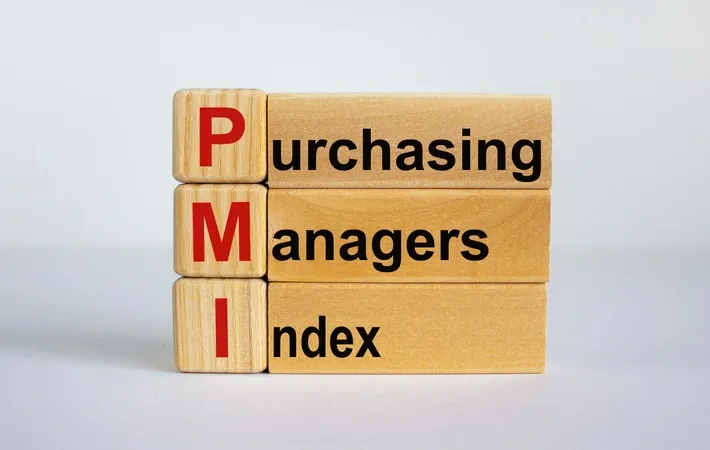Nigeria’s private sector is showing strong signs of recovery, with the Stanbic IBTC Bank Nigeria Purchasing Managers’ Index reaching a 13-month high of 53.7 in February.
According to the PMI report released on Monday, this is the most pronounced improvement in business conditions since January 2024 and marks the third consecutive month of strengthening within the private sector.
The report indicated that the headline PMI rose to 53.7 in February from 52.0 in January, signalling a solid monthly improvement in business conditions.
Some of the key drivers of the growth include increased output, as February saw a marked increase in output, the fastest since January 2024, attributed to higher sales amid an improving demand environment. Output was up across agriculture, manufacturing, services, and wholesale and retail sectors. Also, new orders and purchasing activity all quickened as demand picked up and inflationary pressures showed signs of moderating.
Commenting on the report, Head of Equity Research West Africa at Stanbic IBTC Bank, Muyiwa Oni, said, “Activity in Nigeria’s private sector improved for the third consecutive month with the latest PMI reading of 53.7 points in February at its highest level since January 2024 (54.5 points). A relatively stable exchange rate and moderation in fuel prices are supporting the ease in inflationary pressures, which in turn helped strengthen consumer demand in the month.
“Thus, new orders increased for the fourth consecutive month, with survey participants noting a greater desire on the part of customers to commit to new projects. In line with the increase in new orders, output also increased sharply in February as the output index settled at 56.9 points from 53.7 points in January. That said, input price inflation eased further in February to its weakest level since April 2024. However, about 39.0 per cent of respondents increased their output prices in the month, with less than 1.0 per cent lowering their charges.”
Speaking on the country’s GDP growth, Oni said Nigeria’s real GDP growth improved further in Q4:24, rising by 3.84 per cent year-on-year, from 3.46 per cent y/y in Q3:24. Growth in Q4:24 was the highest since Q4:21, when this economy grew by 3.98 per cent y/y in real terms. Q4:24 GDP now brings 2024 full-year growth to 3.40 per cent, from 2.74 per cent in 2023, supported by both the oil and the non-oil sectors. In terms of contributions to the overall GDP growth in Q4:24, services continue to dominate with a 79.0 per cent contribution to the country’s GDP growth (same as Q3:24), followed by agriculture with an 11.9 per cent contribution, while industries contributed the remaining 9.0 per cent of the real GDP growth in the review quarter.
“The non-oil sector of the Nigerian economy is now poised to improve further in 2025 as the lingering FX stability and improved FX liquidity bode well for the real sector activities, including manufacturing, trade, and real estate. This, in addition to the anticipated reduction in borrowing costs, should further support the growth of the non-oil sector in 2025. Accordingly, we project the non-oil sector to grow by 3.4 per cent y/y in 2025. Therefore, we still expect the Nigerian economy to grow by 3.5 per cent y/y in real terms in 2025, with the Q1:25 growth print forecasted to settle at 3.55 per cent y/y,” he maintained.
Despite the positive reading, the PMI report indicated that the overall input costs increased at the slowest pace in 10 months, although the pace of inflation remained elevated amid higher prices for raw materials and a rise in staff costs that was the sharpest since March 2024.
Cost pressures acted to limit the pace of job creation in February. Employment rose only marginally and at the slowest pace in three months, despite marked expansions in output and new orders. Nevertheless, backlogs of work ticked down. In line with the picture for input costs, the pace of output price inflation remained sharp in February but eased to a seven-month low.
While employment rose only marginally, companies ramped up their input buying during the month, with the pace of growth the steepest since May 2023. Stocks of purchases also increased at a faster pace. Despite rising demand for inputs, suppliers’ delivery times shortened to the greatest extent in seven months as prompt payments led to the speedy delivery of goods.
In terms of business expectations, the report said that although companies in Nigeria remained optimistic that output would increase over the coming year, sentiment dipped from January and was much weaker than the series average. Those firms that were optimistic linked this to business expansion plans, including the opening of new branches. Some respondents also signalled that they were planning to expand export operations. More than half of the panellists predicted a rise in output over the next 12 months.















